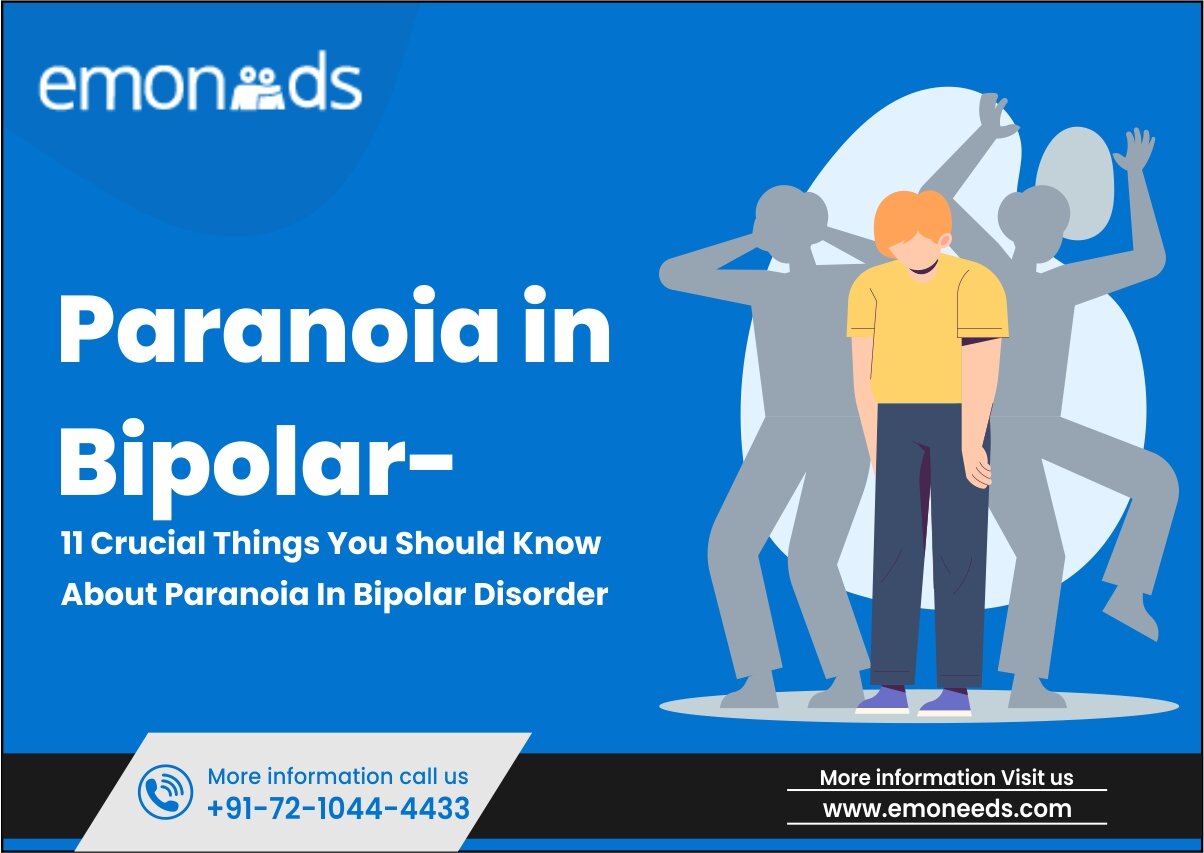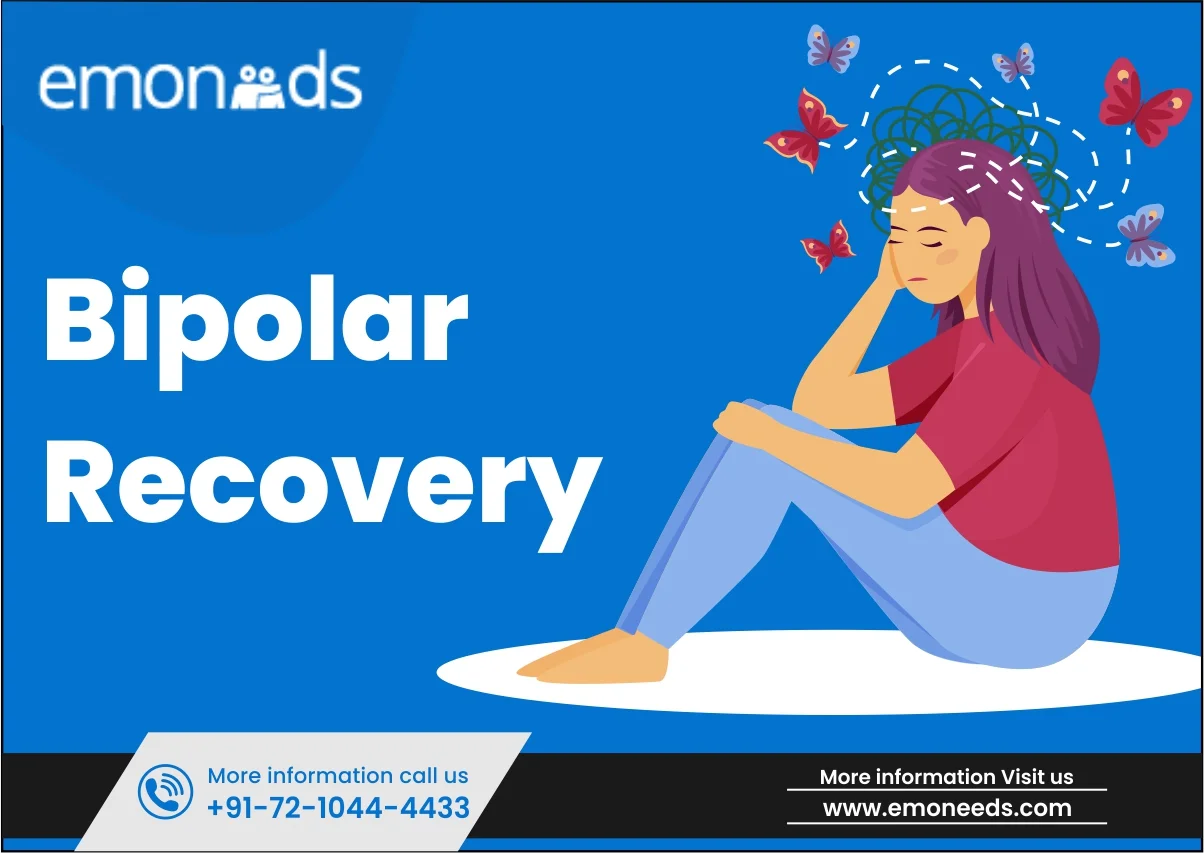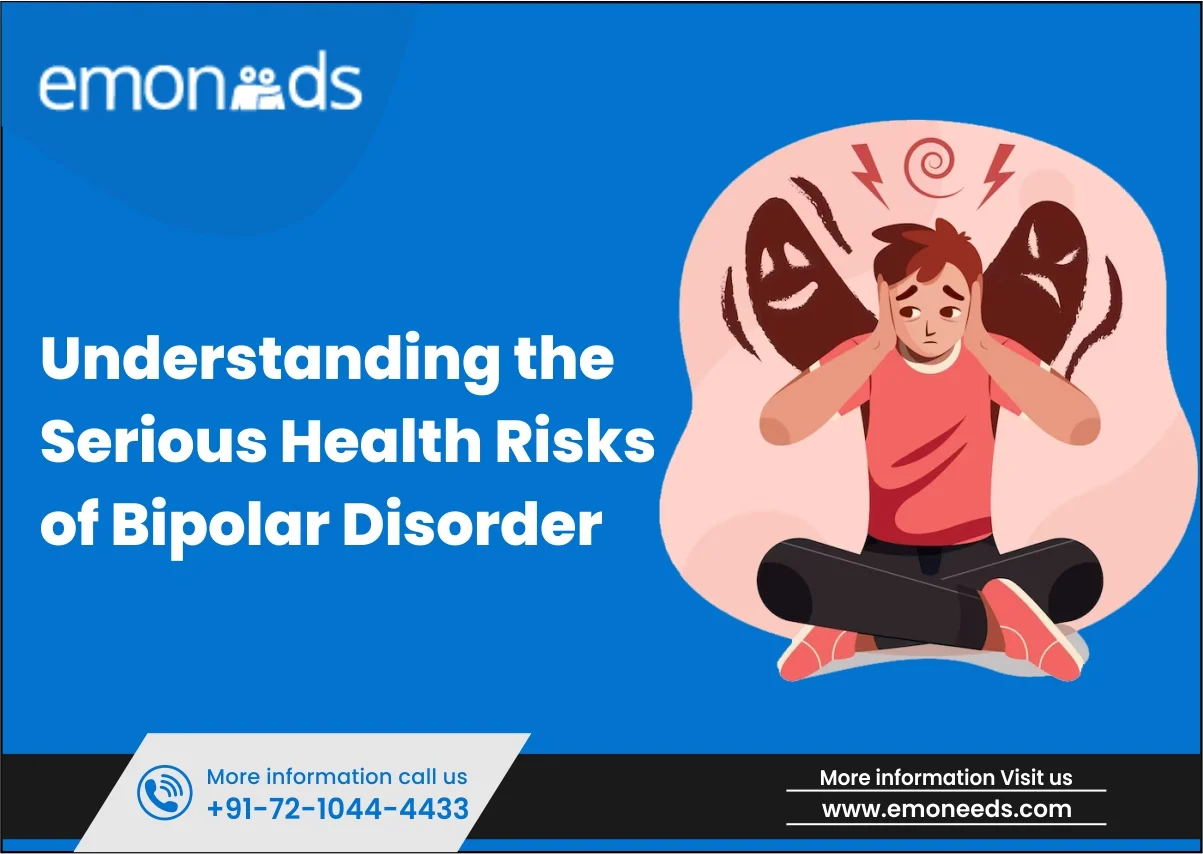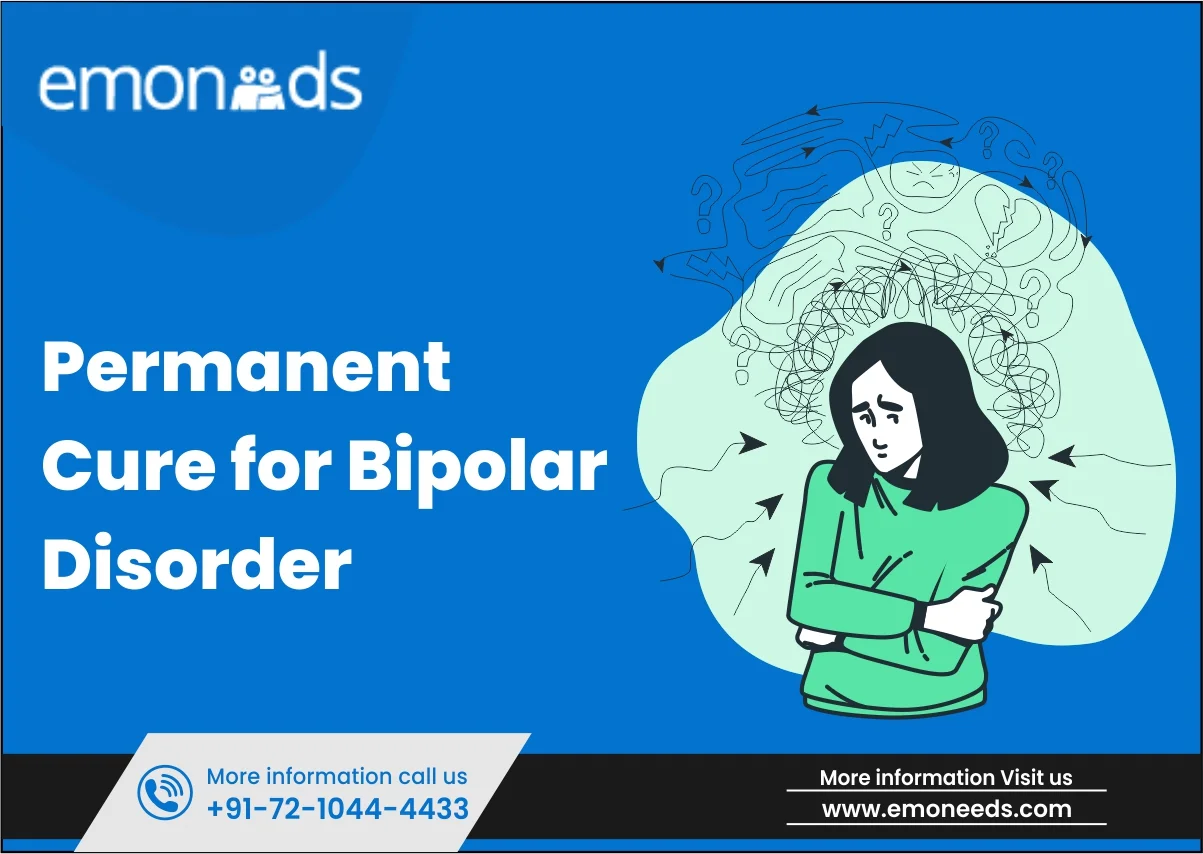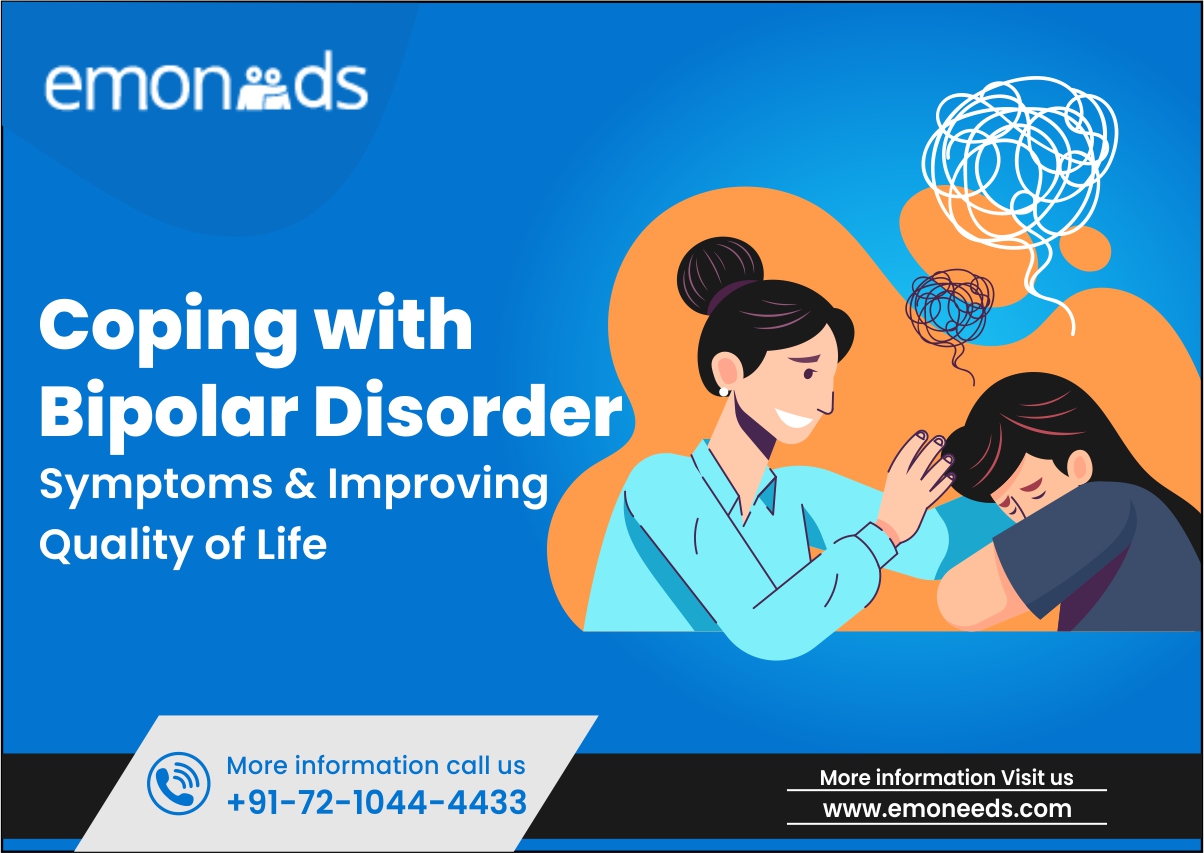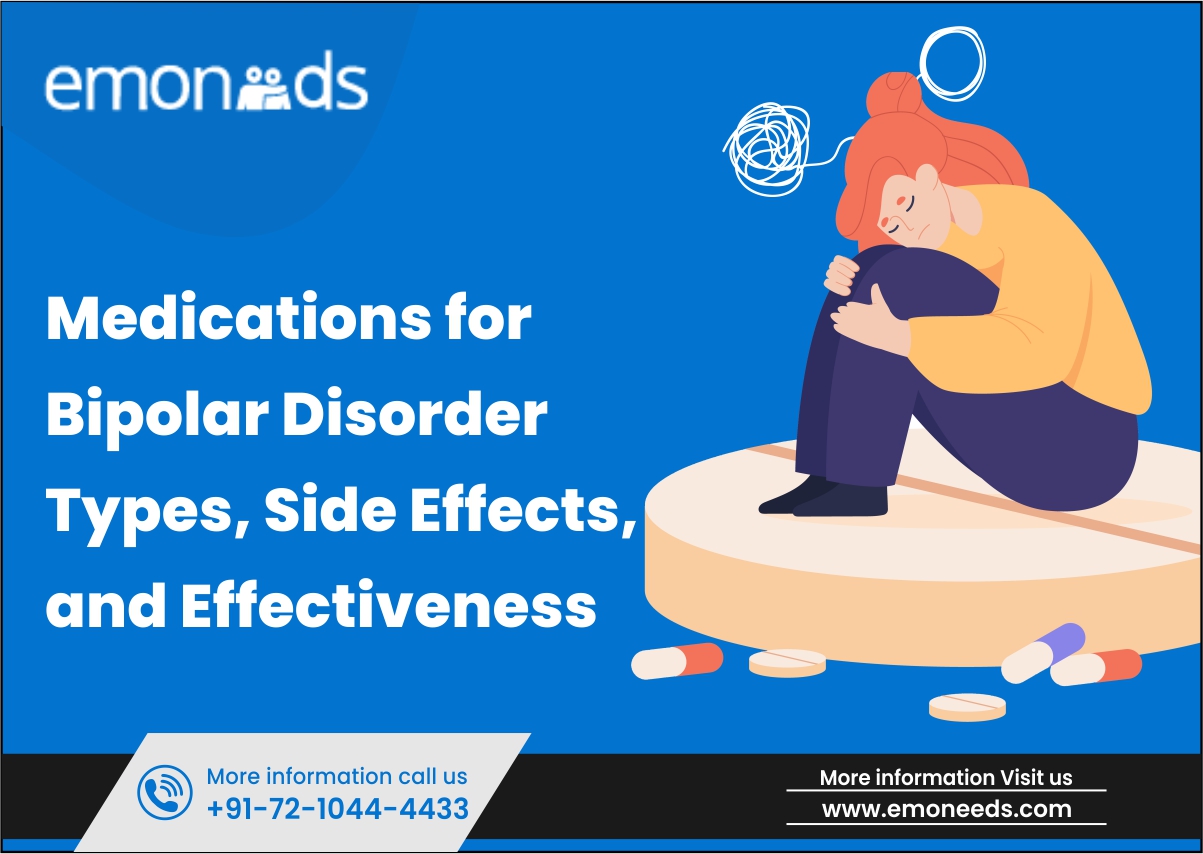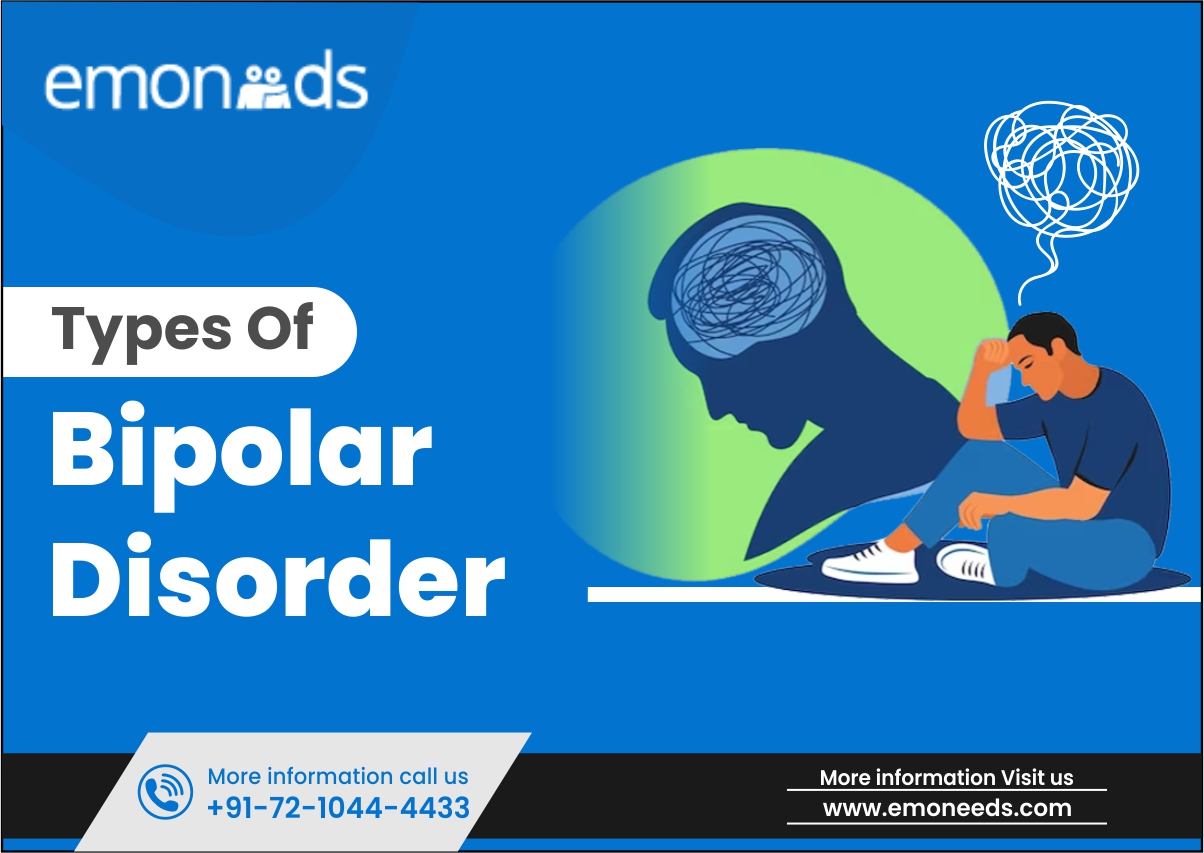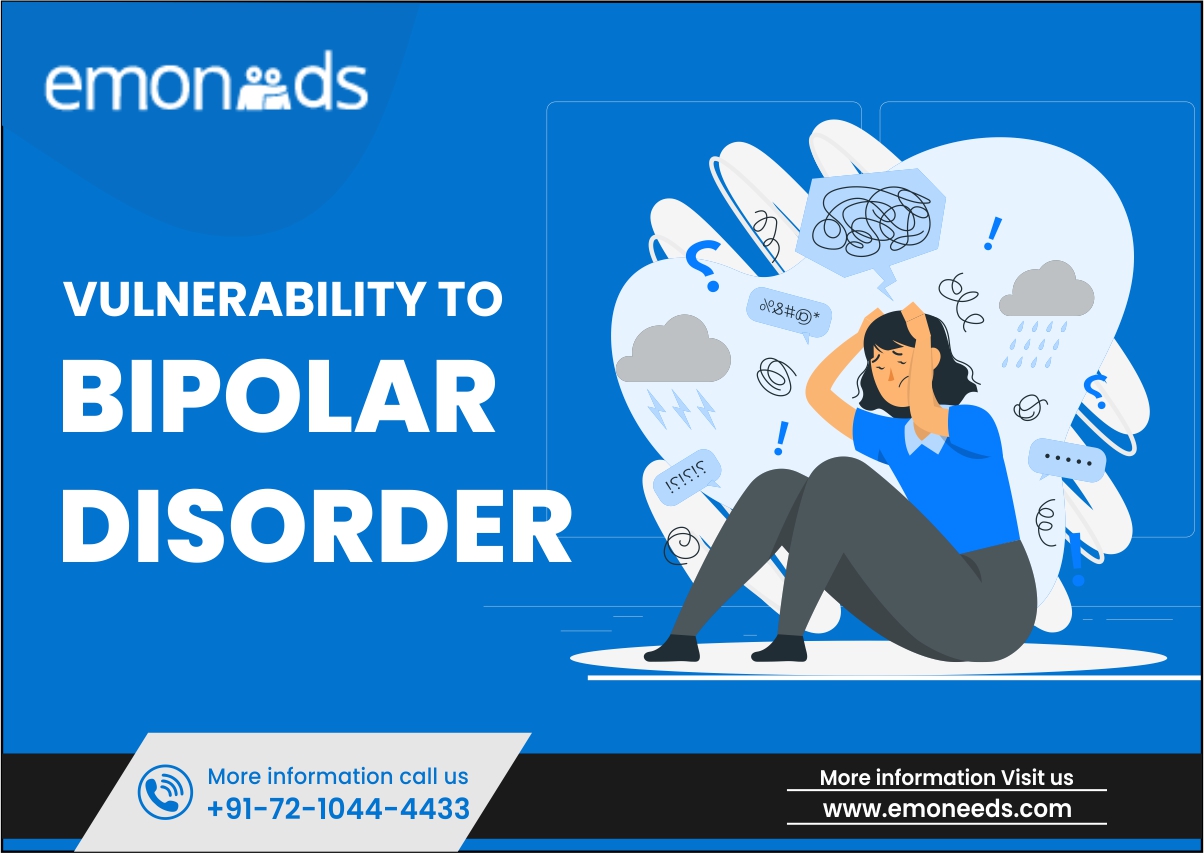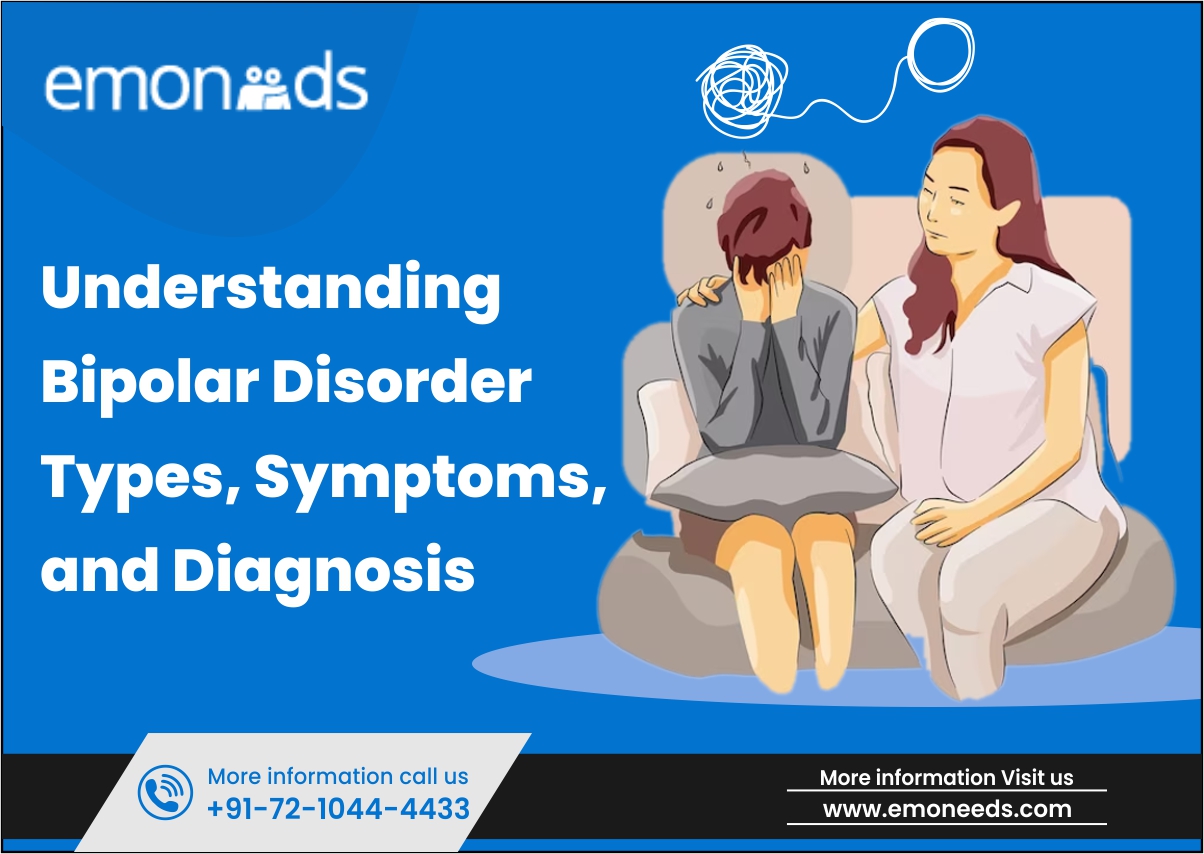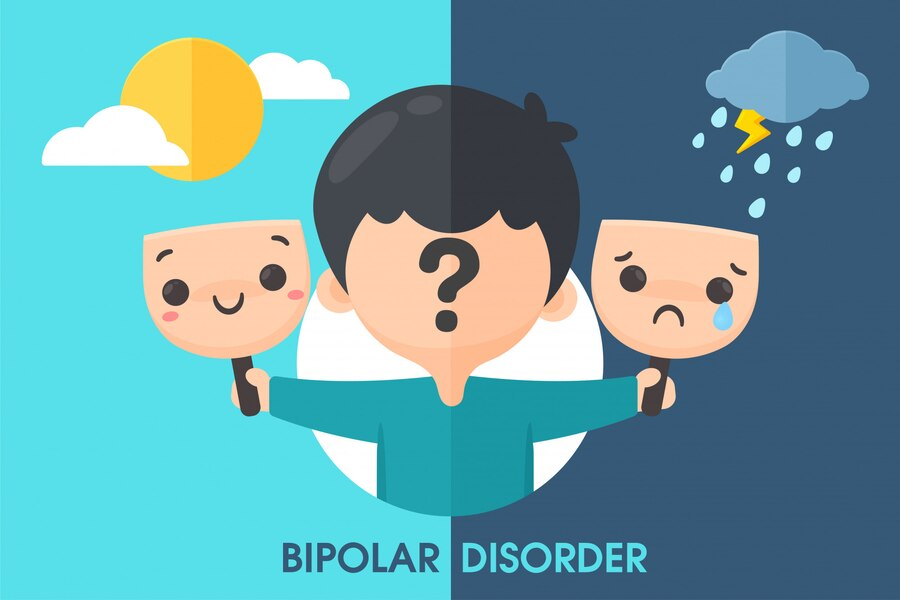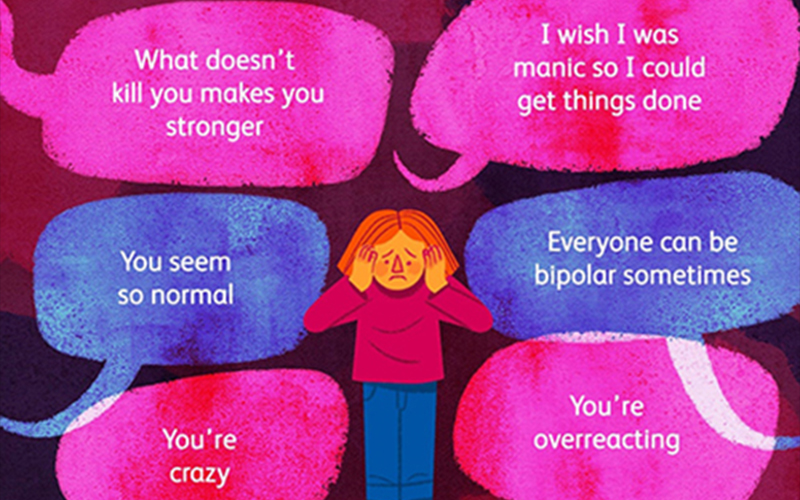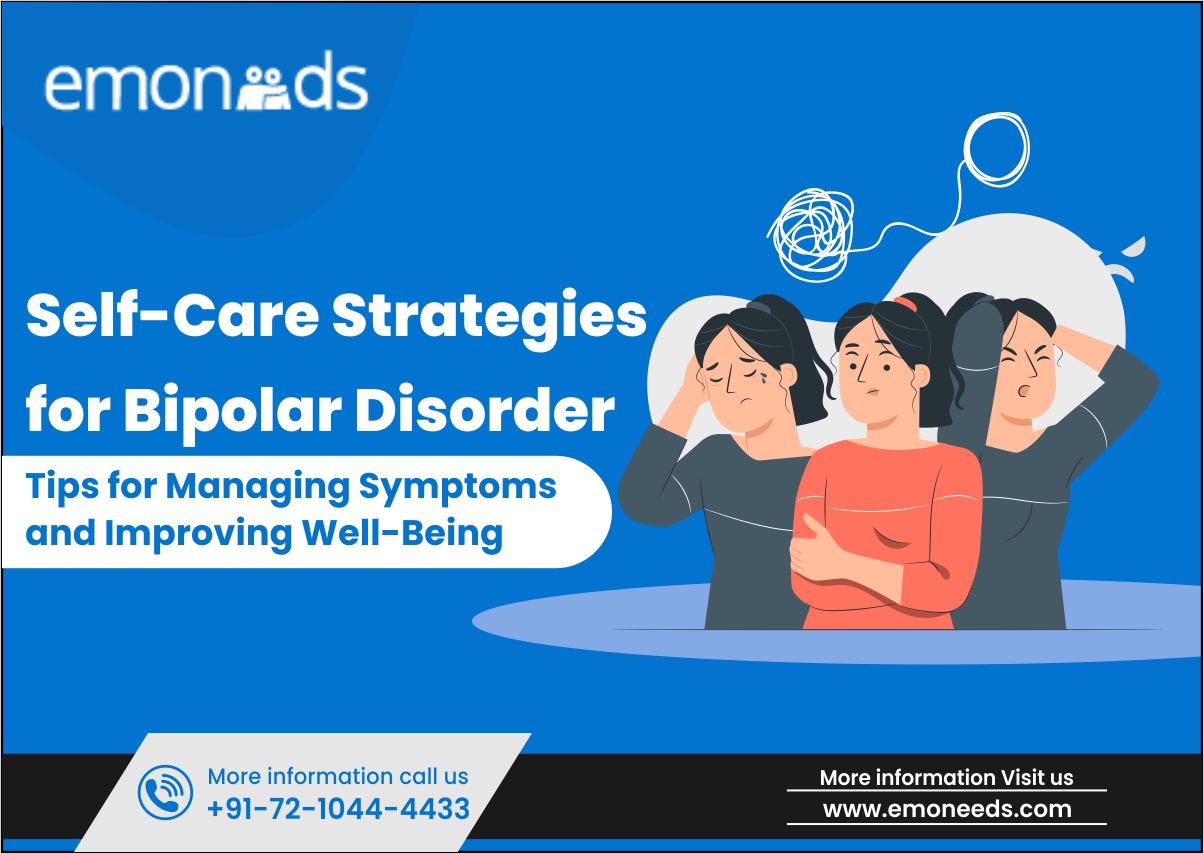
- July 11, 2023
- Saloni Kabra
- 0
Living with bipolar disorder can present unique challenges that can impact various aspects of your life. From managing mood swings to maintaining stable relationships, it is essential to have effective strategies in place to navigate the ups and downs. While medical treatment plays a vital role in managing bipolar disorder, practicing self-care is equally important in promoting overall well-being and enhancing the quality of life.
In this blog, we will explore self-care strategies specifically tailored for individuals with bipolar disorder, providing you with practical tips to manage symptoms and improve your well-being.
Additionally, seeking professional support can greatly benefit your mental health journey. Emoneeds, a dedicated mental health platform, provides comprehensive psychiatric and psychological care. Our team of expert psychiatrists and psychologists collaborate to offer online therapy and medication management.
By integrating self-care techniques and professional support, you can take positive steps toward managing bipolar disorder and experiencing a fulfilling life. Let’s dive into the empowering self-care strategies for your mental well-being.
Table of Contents
ToggleUnderstanding Bipolar Disorder
Bipolar disorder is a complex mental health condition characterized by extreme mood swings, ranging from periods of intense euphoria and energy (known as manic or hypomanic episodes) to episodes of deep depression. It is crucial to understand the different types of bipolar disorder, including bipolar I, bipolar II, and cyclothymic disorder, as each type presents unique symptoms and challenges.
If you suspect you may have bipolar disorder, it is essential to seek professional diagnosis and treatment to develop an appropriate management plan.
Building a Support Network
One of the most crucial aspects of self-care for individuals with bipolar disorder is building a solid support network. Nurturing relationships with loved ones who understand and empathize with your experiences can provide much-needed emotional support during difficult times. Here are a few strategies to help you build and maintain a supportive network:
Communicate openly: Start by having open and honest conversations with your loved ones about your bipolar disorder. Educate them about the condition, its symptoms, and the challenges you may face. This will foster understanding and create a supportive environment.
Seek support groups: Consider joining support groups specifically designed for individuals with bipolar disorder. These groups provide a safe space to share experiences, learn coping strategies, and connect with others who are going through similar journeys.
Reach out to trusted individuals: Identify a few trusted individuals in your life who can serve as your support system. They could be family members, close friends, or mentors who can offer guidance and lend an empathetic ear when you need to talk.
Establishing a Daily Routine
Maintaining a structured daily routine can significantly contribute to managing bipolar symptoms. Establishing regular sleep patterns, and meal times, and incorporating physical activity into your routine can help stabilize your mood and promote overall well-being. Here are some practical tips to help you establish a daily routine:
Prioritize sleep: Aim for a consistent sleep-wake schedule by going to bed and waking up at the same time each day. Create a relaxing bedtime routine to promote quality sleep, such as avoiding stimulating activities before bed and creating a calm sleep environment.
Balanced nutrition: Pay attention to your diet and ensure you are consuming balanced meals throughout the day. Incorporate nutrient-rich foods such as fruits, vegetables, whole grains, and lean proteins. Avoid excessive caffeine or sugary foods that can affect your energy levels and mood.
Incorporate exercise: Regular exercise has been shown to have a positive impact on mood stability. Engage in activities that you enjoy, such as walking, jogging, yoga, or dancing. Aim for at least 30 minutes of moderate-intensity exercise most days of the week.
Recognizing and Managing Triggers
Bipolar disorder can be influenced by various triggers that can disrupt mood stability and potentially lead to episodes. By identifying and managing these triggers, individuals with bipolar disorder can gain better control over their symptoms. Here are some strategies to help you recognize and manage triggers:
Self-awareness: Pay attention to your moods and emotions, and identify patterns or situations that trigger mood swings. It could be stress, sleep disruptions, certain medications, substance abuse, or even specific life events.
Stress management: Since stress is a common trigger for bipolar episodes, developing effective stress management techniques is crucial. Explore stress reduction practices like mindfulness meditation, deep breathing exercises, yoga, or engaging in hobbies that help you relax.
Lifestyle adjustments: Make necessary lifestyle adjustments to minimize exposure to known triggers. This may involve avoiding situations that consistently lead to stress or disruptions in your routine. Recognize your limits and prioritize self-care during challenging periods.
Healthy coping mechanisms: Instead of turning to unhealthy coping mechanisms like substance abuse or impulsive behaviors, develop healthier alternatives. This could include journaling, talking to a trusted friend or therapist, engaging in creative outlets, or practicing relaxation techniques.
Medication Adherence and Management
Medication is often a vital component of bipolar disorder treatment, helping to stabilize mood and prevent episodes. Adhering to prescribed medication and effectively managing it is crucial for symptom management. Here are some tips for medication adherence and management:
Follow your treatment plan: Take your medication as prescribed by your healthcare provider and follow the recommended dosage and timing. Do not make any changes to your medication regimen without consulting your healthcare professional.
Educate yourself: Learn about your medications, including their purpose, potential side effects, and interactions with other substances or medications. This knowledge will help you make informed decisions and engage in open discussions with your healthcare provider.
Maintain regular check-ups: Schedule regular appointments with your healthcare provider to monitor the effectiveness of your medication and address any concerns or side effects. Open communication with your provider is crucial for optimizing your treatment plan.
Healthy Lifestyle Practices
In addition to medication and therapy, maintaining a healthy lifestyle can significantly manage bipolar symptoms. Here are some healthy lifestyle practices to consider:
Exercise regularly: Engaging in regular physical activity has been shown to improve mood, reduce stress, and enhance overall well-being. Find activities you enjoy, such as walking, jogging, swimming, or cycling, and aim for at least 30 minutes of moderate exercise most days of the week.
Balanced diet: Focus on a nutritious diet that includes a variety of fruits, vegetables, whole grains, lean proteins, and healthy fats. A well-balanced diet can provide essential nutrients for optimal brain function and overall health.
Limit alcohol and drug use: Alcohol and drugs can disrupt mood stability and interact with medications. It’s important to minimize or avoid their use to maintain stability and prevent the worsening of bipolar symptoms.
Prioritize self-care: Engage in activities that bring you joy, relaxation, and fulfillment. This can include hobbies, spending time in nature, practicing self-reflection, engaging in creative pursuits, or seeking out enjoyable social interactions.
Stress Management and Relaxation Techniques
Stress management is crucial for individuals with bipolar disorder, as high levels of stress can trigger mood episodes. Incorporating relaxation techniques into your daily routine can help reduce stress and promote overall well-being. Here are some stress management and relaxation techniques to consider:
Deep breathing exercises: Practice deep breathing techniques to help calm your mind and body during periods of stress. Breathe deeply through your nose, hold for a few seconds, and exhale slowly through your mouth.
Progressive muscle relaxation: Tense and relax each muscle group in your body to promote a sense of relaxation and release of tension. Start from your toes and work your way up to your head, focusing on each muscle group.
Mindfulness meditation: Engage in mindfulness practices to bring your attention to the present moment and cultivate a sense of calm. This can involve guided meditations, focusing on your breath, or observing your thoughts and emotions without judgment.
Engaging in hobbies: Find activities that you enjoy and that help you relax. This could include reading, listening to music, practicing art, gardening, or engaging in any other hobby that brings you joy and allows you to unwind.
Conclusion
Managing bipolar disorder requires a comprehensive approach that includes medical treatment, therapy, and self-care strategies. By incorporating self-care practices into your daily routine, recognizing and managing triggers, adhering to medication, maintaining a healthy lifestyle, and implementing stress management techniques, you can better manage your symptoms, enhance your well-being, and improve your overall quality of life.
Remember, self-care is not a one-size-fits-all approach, so it’s important to experiment with different strategies and tailor them to your unique needs. Always consult with your healthcare provider for personalized guidance and support on your journey to managing bipolar disorder.
If you’re looking for support in your mental health journey, we are here to assist you. Our team of dedicated professionals provides comprehensive care, including online therapy, Cognitive Rehabilitation Therapy (CRT), Social Skills Therapy (SST), and medication management. To access our services and connect with our team contact us today. We are committed to helping you achieve optimal mental well-being and lead a fulfilling life.
Remember, the key to effective self-care is consistency, patience, and a willingness to adapt as needed. By prioritizing your mental and emotional well-being, you can empower yourself to lead a fulfilling life despite the challenges of bipolar disorder.
